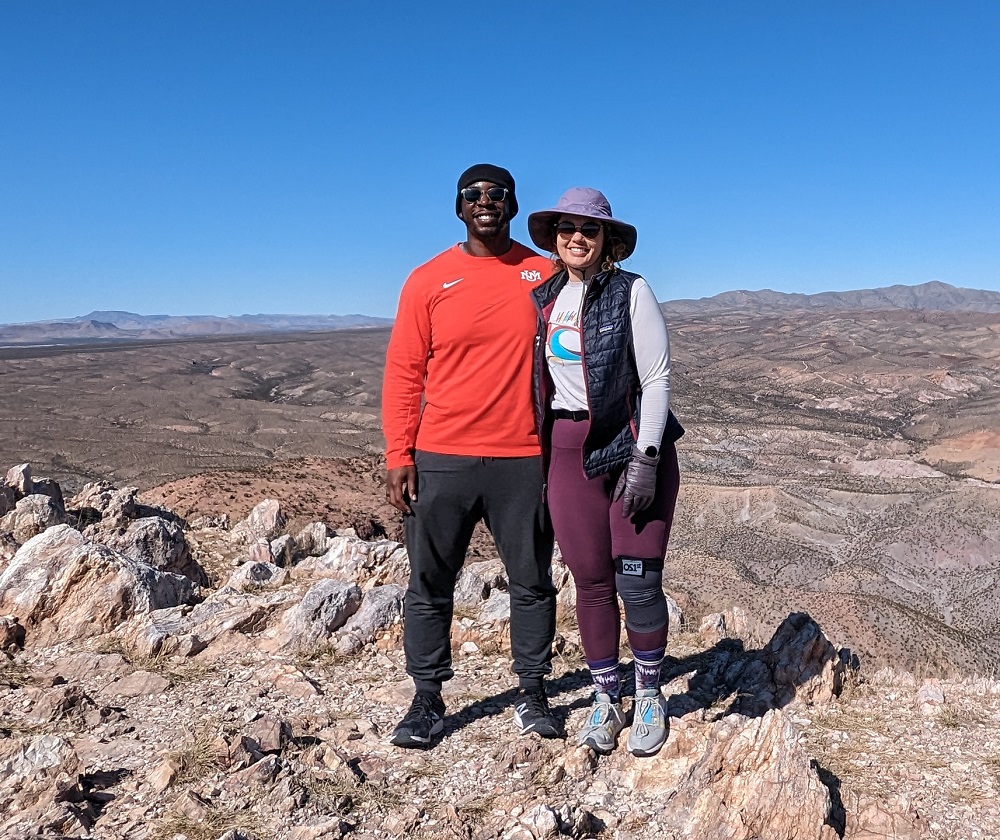Black History Month 2024 Resident Spotlight
Get to know Dr. Adedayo Balogun
Zachary Noriega, MPA | Physical Medicine & Rehabilitation/CU School of Medicine Feb 1, 2024
Get to Know: Dr. Adedayo Balogun
What made you want to pursue a career in Physical Medicine & Rehabilitation?
As a medical student, I had a wide and varied interest in all of my different clinical rotations. I had a strong interest in the musculoskeletal system, and the neurological and neuroanatomy courses. When I was exposed to a PM&R rotation, it was the first rotation that I felt completely in tune with the physicians that were present. It helped address all of the most important aspects of a person’s healthcare, and took into account all aspects of a person’s experience when taking part in their care.
How has the CU PM&R residency program allowed you to pursue your goals?
This residency program has so far allowed me to cultivate my experience and independence in different rehabilitation settings and learn how to navigate the different barriers and challenges that patients face routinely. I've been exposed to many different versions of being a PM&R physician, and I have had the ability to explore these different areas in a way that I can prepare myself for life after residency.
What is your “why”?
My “why” is always to bring the best care to as many people that I can first and foremost. I want to be able to deliver that same care to people that have historically been overlooked, and taken advantage of as well. I aspire to provide patients that may not always feel seen or heard to understand that I’m taking their concerns to heart, and I understand the perspective that many of their other care providers may not. I also strive to be a positive example for others who may look like me or identify with me. I want to be more than an example, but a support system for those coming after me.
February is a month to honor and celebrate Black leaders. What does this mean for you?
Black History Month is an opportunity to take a step back and reflect on the ways that black people have contributed to the world. We have been leaders for change and equity, leaders in science, health care, ingenuity and all aspects of life. Being a leader, to me is about being accountable. I think that having priorities, morals, and standards, and holding strong to those values is all that it takes to be a leader.
What leadership role(s) have you taken up and what impact have they had on you and your time in medical school or residency? As a medical student I took part in my school's Student National Medical Association (SNMA) chapter. As president of this chapter, we had a hand in reaching out to the community for other people to understand that becoming a physician was attainable, finishing school and going to the college opened plenty of doors, and providing support and guidance for undergraduate students that had an interest in going to medical school.
Being a physician inherently occupies a leadership role. As a physiatrist, we regularly take part in team meetings, where we discuss patients with PT’s, OT’s, RN’s, social workers, case managers, and speech therapists. Sometimes, being a leader is understanding how the team functions most effectively, other times it’s trusting your teammates to their expertise and simply providing an overall team goal for everyone to strive towards.
What words of encouragement do you have to share with future students of color pursuing careers in healthcare?
The words of encouragement that I have for those students would be to always show up and be yourself. You have a unique experience and perspective that matters, and never let fear of failure keep you from trying something that you are passionate about. Do your best to surround yourself with people that you admire and have similar goals as yourself. Not competitors, but people who will lift you up with them. These are the people that you’ll grow the closest to both professionally and personally.